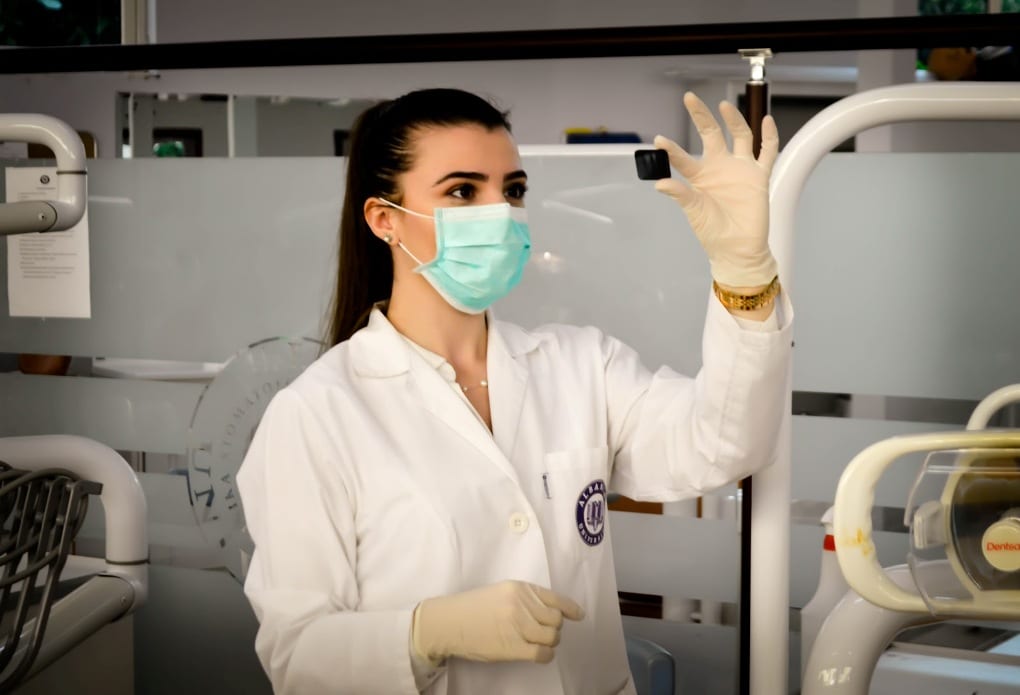We all have spent time debating what our career path will look like. What do I want to do? What am I passionate about? What kind of company am I looking to work for? We spend an immense amount of time ruminating over these questions. However, we often forget to consider one of the most important questions: what is the best career for my personality type?
Choosing a career based on your personality type can help you find a job that challenges you and allows you to use your strengths. By deciding on a career path that suits your personality type, you increase the chances of finding a career you want to stay in for the long haul.
In this article, we’re going to take a look at ISFP personality traits and the best ISFP jobs to match those traits.
What Is the Myers-Briggs Test?
The Myers-Briggs type is determined by a personality indicator that inquires about four different aspects of your internal and external behavior. It assigns you four letters representing these four categories of your personality:
- Extravert (E) or Introvert (I)
- Sensing (S) or Intuitive (N)
- Thinking (T) or Feeling (F)
- Judging (J) or Perceiving (P)
Depending on how you rank in these four categories, you can learn all about your personality traits, aspirations, and explanations for your actions and behaviors. This is essential information that can be incorporated into your long term plans for a career.
What Is an ISFP personality type?
ISFP stands for Introverted (I), Sensing (S), Feeling (F), and Perceiving (P). ISFPs are referred to as the ‘Adventurer’ personality type because they are courageous and free spirits. Although they may need time to themselves to recharge, they are highly social and enjoy spending time with others. They are extremely artistic and creative people, and they place a lot of importance on aesthetically-pleasing art forms.
They enjoy the challenge of change and do not like following traditional norms. ISFPs are one of the most spontaneous personality types and they are constantly looking for a new passion to put all of their energy into.
ISFP Strengths

Here is a list of an ISFP’s best qualities:
- Extremely creative, artistic, and imaginative
- Excellent problem-solving skills
- Curious about the world
- In tune with emotions
- Sociable
ISFPs have an eye for art and their creative nature helps them find solutions to problems in very unique ways—making them a vital asset in any organization. Their curiosity about the world drives them, and their deep passion keeps them working hard until their goal is reached.
They are also very likable and popular people, especially because their sensitivity allows them to make deep connections and relationships with others. All of these personality traits illustrate how valuable an ISFP can be in the workplace. Understanding an ISFP’s strengths and weaknesses can help you decide what career would be your best fit.
ISFP Weaknesses

Here is a list of common weaknesses in ISFPs:
- Very competitive
- Risky behavior
- Independent
- Easily overwhelmed
- Stubborn
While ISFPs are exceedingly passionate and dedicated about their goals and aspirations, the flip side of that is their intense competitiveness. They have a desire to be the best in everything that they do, but the competitiveness could hinder their end result. ISFPs are known for biting off more than they can chew due to their exceptional goals without realizing how overwhelming things can be.
Because they are so combative, ISFPs are also extremely independent and prefer to work alone rather than in a group. They do not appreciate outside input and can at times appear to be very set in their beliefs. Their curiosity and spontaneity might also lead to risky behavior.
What about ISFP-A and ISFP-T?
ISFP-A stands for an Assertive (A) ISFP, and ISFP-T stands for a Turbulent (T) ISFP. Assertive ISFPs are typically considered to be more confident, while Turbulents struggle with their self-esteem. Assertives feel more comfortable with themselves and their lives, but Turbulents are more ambitious in making changes.
Turbulent ISFPs are also more susceptible to stress as they place a lot of importance on how they are perceived by the public. However, this helps Turbulents to be more sociable and likable because their sensitivity helps them relate to the people around them, especially in the workplace.
Best ISFP Career Matches
Here’s the list of the top five ISFP jobs:
- Fashion Designer
- Professional Chef
- Graphic Designer
- Veterinarian
- ER Physician
Fashion Designer

Fashion designers create and make clothing, shoes, and accessories. They track the latest styles and trends in the media, use computer-design systems, oversee the creation of their products, market their clothing lines, participate in fashion shows. They attempt to foresee future trends, sometimes even setting the trends themselves. You can be hired and design for large labels or you can create your own business.
Depending on your outreach and sales with customers, the annual salary of a fashion designer varies greatly. On average in the United States, fashion designers make about $72,000 a year.
Becoming a fashion designer is the perfect career match for an ISFP because they would have the right outlet to nurture their creativity. The job would allow them to maintain independence in their creations, but also be sociable as they market within the fashion industry. They would be kept interested by their curiosity and drive to solve new problems and challenges every day.
Professional Chef

Professional chefs specialized in food preparation and can work in places such as restaurants, hotels, catering companies, or private institutions. They supervise the rest of the kitchen staff, ensure that the food quality is perfect, maintain proper food and safety rules, and create recipes and menus.
Depending on your level of education, experience, and where you work as a chef, your salary would differ. With more training and experience, a specialized head chef would have a higher income. On average in the United States, professional chefs make about $48,000 a year, with an 11% expected growth rate.
ISFPs would enjoy the fast-paced nature of working in a kitchen. The ability to create and develop recipes would have their imagination thriving. ISFPs enjoy working hard and this career would allow them to set goals and face obstacles that they are passionate about. They would also make great supervisors as they would take employees’ emotions and needs into consideration.
Graphic Designer
Graphic designers use computer software to create virtual art. Graphic designers are hired by companies to make online visuals for marketing and product purposes. They spend a lot of time analyzing the market, penning messages for the design to illustrate, and creating logos and websites. They also present the design to the client and review the design before it is finalized. On average, graphic designers make about $50,000 a year, but there is a lot of room for growth and success as you gain experience in the field.
ISFPs would love to be a graphic designer because they could use their creativity and problem-solving skills in full force. The profession would allow them to have their creative independence and freedom, while still utilizing their social skills and likeability to please clients. Their curiosity about the world will keep them up-to-date with market and social trends, which is an essential part of being a graphic designer.
Veterinarian

Veterinarians are physicians that specialize in the medical treatment of animals. They diagnose and treat illnesses and physical problems, and conduct research to learn more about animals’ biology. This can include cleaning wounds, operating on the animal in surgery, giving vaccinations, prescribing medication, and using medical machinery. On average, veterinarians make about $93,000 a year, and there is a projected 18% growth in the field.
As highly emotional people, ISFPs are very nurturing and loving, making them perfect to care for animals as a veterinarian. A good veterinarian must have a high level of sensitivity to respond to the situation well. The profession also requires a lot of creativity to effectively solve unique and unexpected medical problems that arise.
ER Physician

An ER physician is a doctor that works in the emergency room of a hospital. This is a specialized type of physician that is prepared to treat people in an emergency, often with very little time and under extreme pressure.

"Career Karma entered my life when I needed it most and quickly helped me match with a bootcamp. Two months after graduating, I found my dream job that aligned with my values and goals in life!"
Venus, Software Engineer at Rockbot
An ER physician must be prepared for the unexpected, including surgeries, vaccines, ordering tests, and knowing what kind of support is needed for the patient. Some doctors are specialized in one area of human health, but ER doctors can treat various different problems that may occur in a patient. On average, ER physicians make about $208,000 a year, with a 7% expected growth.
ISFPs would be very successful ER physicians because of their ambition and problem-solving skills that can be exercised well under pressure. ISFPs put a great deal of pressure on themselves to be successful, and a profession such as this requires an extreme amount of loyalty and dedication. Their curiosity about the world would lead them to learn more about human biology, and their innate sensitivity would help them better understand and treat their patients.
Unlimited Choices for ISFPs

ISFPs are creative, ambitious, curious, and sociable people who are always up for a new challenge. While sometimes stubborn and independent, they can be hugely successful in the right career path.
There are unlimited choices of careers for ISFP personality types. Whether you want to become a fashion designer, professional chef, graphic designer, veterinarian, or ER physician, there are many opportunities that allow you to effectively use your strengths.
Choosing a career based on your personality type and traits can help you get into a profession that you are both passionate about and good at—making you a valuable asset to that industry.
About us: Career Karma is a platform designed to help job seekers find, research, and connect with job training programs to advance their careers. Learn about the CK publication.



